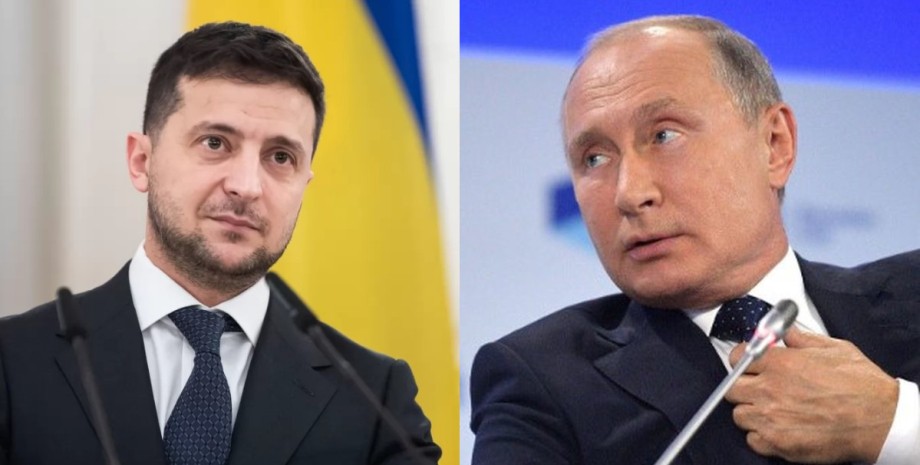
 By Victor Duda
By Victor Duda
He stressed that Ukraine should take specific steps, in particular, to cancel the current ban on negotiation with Vladimir Putin, introduced after the annexation of four Ukrainian regions in 2022 by Russia. Earlier, Russian President Vladimir Putin declared readiness for negotiations without prior conditions. However, the Ukrainian side considers such statements insincere against the background of continuing attacks on civilian infrastructure.
Presidential Office Head Andriy Yermak noted that Russia "does not stop fire and attacks Ukraine with drones right now", calling the Kremlin's statements about peace "outright lies". Ukraine insists that it is ready for negotiations only after a complete ceasefire. President Volodymyr Zelensky has repeatedly stated that any dialogue is possible only after the withdrawal of Russian troops and the restoration of the territorial integrity of Ukraine.
In particular, international mediators, in particular the United States, continue to press on both parties in order to achieve peaceful settlement. However, Kyiv fears that Moscow can use negotiations to delay time and secure the occupied territories. The focus was understood, as evidenced by the Kremlin's statement on its readiness for direct negotiations. The idea of direct peace talks between Russia and Ukraine has already been recorded in Donald Trump's peaceful program.
Therefore, according to political scientist Oleg Posternak, the Kremlin's statement about the expectation of a "signal" from Kiev - looks at least strange or showing. "It can be assumed that at some stage, Trump was in contact with Russia through Vitcaff or even directly with Putin and concluded: a huge number of complex issues of Russian-Ukrainian relations (starting from the status of Russian to the issue of the return of Ukrainian children) cannot be solved through the US.
That is why the point of direct negotiations. Soybend in turn means that Putin gave Trump a chance to get political dividends - the laurels of the peacekeeper, who helped to reach a truce or even peace. At the same time, the most difficult, practically insoluble issues were proposed to leave for some direct negotiations between Russia and Ukraine, where it would be almost impossible to achieve the result.
This is clearly visible from the Ukrainian experience of preliminary negotiations: Minsk-1, Minsk-2, Istanbul-all of them demonstrated that such negotiations can be stretched for years without real results. "Russia has taken this approach. It is now publicly pressing on Ukraine, requiring direct contacts.
At the same time, Ukraine has a legal obstacle in Ukraine: a decision of the National Security and Defense Council (NSDC), which was introduced by the Presidential Decree, which prohibits direct negotiations with Putin. I do not consider this obstacle to the fundamental, if it is not about global political issues, but about technical or humanitarian, "the political scientist continues.
Posternak leads examples of questions that could be resolved directly between the Russian Federation and Ukraine: in such cases, direct negotiations could be justified from a humanitarian point of view. "However, when it comes to the issue of sovereignty of Ukraine-accession to the EU, defining the status of territories-there can be no language about such negotiations.
Ukraine should not negotiate its future with the occupier, even though Russia now controls about 20% of our territory," says political scientist. In his opinion, the same applies to issues such as: such issues can also be resolved through technical negotiations, but global political agreements with Putin Zelensky, most likely, will not lead, the expert says. According to Posternak, Russia today's statements about negotiations are nothing more than an information game.
Putin expects that Ukraine will give up direct negotiations, after which he will be able to put it in a favorable light: as a state that allegedly does not seek peace, is not ready to compromise, does not want to sit at the table of negotiations. To do this, Russia took other information steps - for example, because of the idea of the Easter Armistice, and now because of the proposal of direct negotiations.
"All this campaign looks quite absurd: Russia accuses Ukraine of unwillingness of peace while continuing daily firing Ukrainian cities. It sees the whole world. Thus, pressure on Ukraine is part of the tactics of state terrorism, which is consistently applied by Russian authorities. Political scientist. On April 28, US President Donald Trump suggested that Vladimir Putin to stop fire and sign an agreement to end the war on April 28.










All rights reserved IN-Ukraine.info - 2022